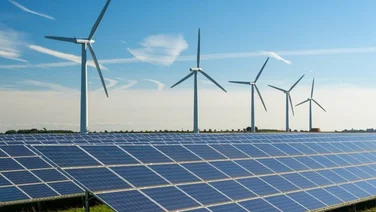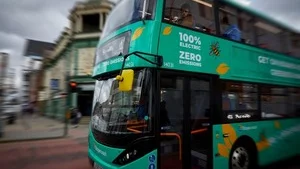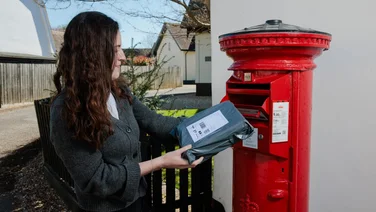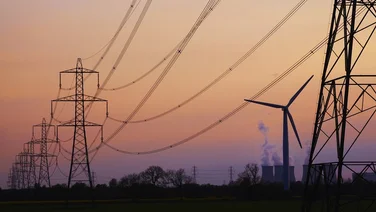- The open letter was signed by 12 energy companies to highlight core areas to address as part of the government’s Warm Homes Plan
- Financial offering must be made available to overcome the cost barrier
- The government’s £13.2bn commitment to upgrade homes is “very welcome”
The Energy Saving Trust and 11 other expert home and business decarbonisation organisations have written to Miatta Fahnbulleh MP, minister for energy consumers, to make sure the government’s Warm Homes Plan permanently brings down energy bills accelerating the roll out of low-carbon heating, among much else.
The letter included five core areas that the signatories claimed are vital to the Warm Homes Plan lowering bills, improving energy security and lowering CO2 emissions.
These are: :
- Provide sufficient information, advice and support
- Effective access to funding and finance
- Accelerate low carbon heating in homes
- Make the Plan long-term and all-encompassing
- Support the supply chain to meet demand
Within the letter signed by the likes of The MCS Foundation, Trustmark, Sustainable Energy Association and the Aldersgate Group , it stated the UK government’s commitment to invest £13.2bn to upgrade 5 million homes during this parliament is “very welcome”.
However, each organisation recognised that to achieve this, a comprehensive, joined-up approach to engage the public, scale up the supply chain and upgrade people’s homes.
It read: “The Warm Homes Plan presents unique opportunities to set out a clear roadmap for the UK government to go further than in recent years and bring down household energy bills, getting the UK closer to meet its net zero commitments”.
The letter included calls to set up a national retrofit advice service in England that works alongside existing local services to deliver consistent outcomes across the country. It also said the aim should be to simplify the process for households and that impartial, tailored advice will give people the confidence to upgrade their homes.
It also suggested the following:
- Financial offering must be made available to overcome the cost barrier, including combined grants and UK government backed loans.
- Simplify or consolidate financial support under a single, recognisable brand
- Accelerate the rollout of low-carbon heat to reduce fossil fuel reliance and increasing public awareness and trust in LCT
- Continuity is more valuable than almost anything. There must also be a commitment to invest the full £13.2bn to set a long-term direction for energy efficiency policy in the UK
- Support the supply chains to meet demand by providing certainty and clarity. Doing so will create the right framework for the supply chain to invest, developing the right skills of the current and future workforce.
Dear Minister,
As a group of expert home and business decarbonisation organisations, we write to you to highlight the five key areas that we think the upcoming Warm Homes Plan must include if it’s to:
- permanently bring down household energy bills
- improve energy security
- lower CO2 emissions
In the context of the cost of living crisis alongside continuing high energy prices, it’s never been more important to upgrade the UK’s housing stock to reduce heat loss and switch to low carbon heating.
The UK Government’s commitment to invest £13.2bn to upgrade five million homes during this parliament is therefore very welcome. Yet we recognise that to achieve this target we need a comprehensive, joined-up approach to engage the public, scale up the supply chain and upgrade people’s homes.
The Warm Homes Plan presents a unique opportunity to set out a clear roadmap for the UK Government to go further than in recent years and bring down household energy bills, getting the UK closer to meeting its net zero commitments.
There are five core areas this group agrees the Plan must focus on if the UK Government is to successfully deliver on its ambitions:
1. Provide sufficient information, advice and support
The Plan must provide sufficient information and support to the public to make upgrades to their homes. This means addressing low levels of public awareness of the net zero transition to motivate households to act.
This should go hand in hand with setting up a national retrofit advice service in England that works alongside existing local services to deliver consistent outcomes across the country and simplify the process for households. Impartial, tailored advice will give people the confidence to upgrade their homes.
2. Effective access to funding and finance
There must be a financial offering available for all households to overcome the upfront cost barrier of retrofit. This should combine grants and UK Government backed loans. This means that those in fuel poverty don’t need pay towards the cost of home upgrades and that there’s a financial incentive for homes in higher income bands.
Simplifying access to financial support will also be key. This should include consolidating funding under a single recognisable brand as well as providing sufficient access to impartial, tailored advice.
3. Accelerate low carbon heating in homes
The Plan needs to accelerate the roll out of low carbon heat to reduce our reliance on fossil fuels. This means supporting households to overcome the upfront cost as well as taking steps to reduce running costs of
- heat pumps
- heat networks
- other low carbon technologies
Increasing public awareness and trust in low carbon heating will also be crucial, including myth busting to combat misinformation.
4. Make the Plan long term and all-encompassing
For market transformations such as the Plan envisages, continuity is more valuable than almost anything else. The Plan presents an opportunity to set out a long term, comprehensive approach that accounts for all building and tenure types. As part of this, key enabling policies, such as EPC reform and the Future Homes Standard, must be implemented without delay.
There must also be a commitment to invest the full £13.2 billion promised in the manifesto to set a long term direction for energy efficiency policy in the UK. Changes are also needed to simplify and strengthen consumer protections and to make it easy for consumers to seek redress, alongside a national advice service to help them get further support if they experience problems.
5. Support the supply chain to meet demand
The Plan must support supply chains to meet demand by providing policy certainty and clarity. Only this clarity will create the right framework for the supply chain to invest, developing the skills of the current and future workforce. This will also allow incentives to be put in place that make jobs in the supply chain more attractive across the country.
A supply chain that is in it for the long-term is much more able to consistently deliver high quality standards that will benefit consumers and maintain public trust and confidence.
This Plan comes at a crucial time where the Climate Change Committee has recently indicated that the UK Government can still step up to meet its ambitions for the heat transition.
We urge the UK Government to make sure these five areas are prioritised to ensure the Warm Homes Plan is a success so that more people can enjoy the benefits of warmer homes and lower energy bills.
We look forward to engaging with and supporting the UK Government in this vital area. The signatories of this letter would welcome the opportunity to meet with you to discuss our proposals in more detail.

Install insulation
Insulation can help warm your home and cut your energy bills. Use the button below to get free quotes from our trusted suppliers
More help is needed to encourage clean tech adoption
Additionally, a report from the University of Sheffield, which partnered with the University of Nottingham and the Institute of Labour Economics (IZA) in Germany, found that the government is not doing enough to meet its net zero goals by 2050.
It found that in recent years, households using solar panels for electricity generation has increased from 3% to 6.5%, solar panels for heating also increased from 1.4% to 2.1% and households using an electric or hybrid vehicle increased from less than 1% to 2.8%.
However, the report said widespread clean tech adoption is being held back by factors such as age, education, occupation, ethnicity and gender, all of which contribute directly and indirectly to people’s ability to invest in LCTs, and called for more to be done to help people from “disadvantaged backgrounds”.
Dr Andrew Burlinson, professor, University of Sheffield’s School of Economics, said that research suggests that some socioeconomic groups have “not been adequately supported to adopt” clean technology.
Burlinson warned “limiting the ability of the most disadvantaged groups” to get bill-lowering technology may “further exacerbate broader inequalities in our society”.
He also said the university’s analysis revealed that educated and affluent households are more likely to have been able to adopt LCTs early, such as solar energy, solar heating and electric or hybrid transport.
He said that the ending of grants designed to help low-income households adopt clean technology has hurt adoption rates and are now “being left behind” in the transition to net zero.
To overcome this, Burlinson urged the government to reintroduce subsidies for the installation of domestic solar panels and other clean tech, pointing out that similar help is already available for EV consumers.
“The UK government currently subsidises the purchase of some types of electric vehicles at the point of sale, but these subsidies are largely independent of the socioeconomic status of the consumer,” he said.
“Alongside this, subsidies to install domestic solar panels ended in 2019, which means that incentives to help people are now limited, and may be working less well for those members of society with a lower socioeconomic status”.
But the report did say there are positive signs that some consumers are increasingly adopting more sustainable ways to live and travel.
Burlinson also added that the Climate Change Committee reported that for the UK to make significant gains in reaching its net-zero targets, the market share for EVs needs to be at 100%, from only 16.5% today, and that solar panel installation rates need to increase by five times that of current levels.
The ZEV Mandate updates could drive adoption
Earlier this month, the government said it will update its Zero Emission Vehicle (ZEV) Mandate in a bid to boost EV uptake.
The updates include taking measures to make it easier for car manufacturers to meet the demands of EV legislation, including:
- Increasing flexibility of the mandate for manufacturers up to 2030, so more cars can be sold in later years when demand is higher
- Hybrid cars can be sold until 2035 to help ease transition
- Improve charging infrastructure, with a new chargepoint being installed every 30 minutes
- Pressing on with tax breaks worth hundreds of millions to help people switch to EVs.
The measures are part of the government’s Plan for Change and are designed to make the UK economy more resilient in the face of global headwinds, including tariffs imposed on car imports by US president Donald Trump.
Read more about the changes on our page: Government updates Zero Emissions Vehicle Mandate.






